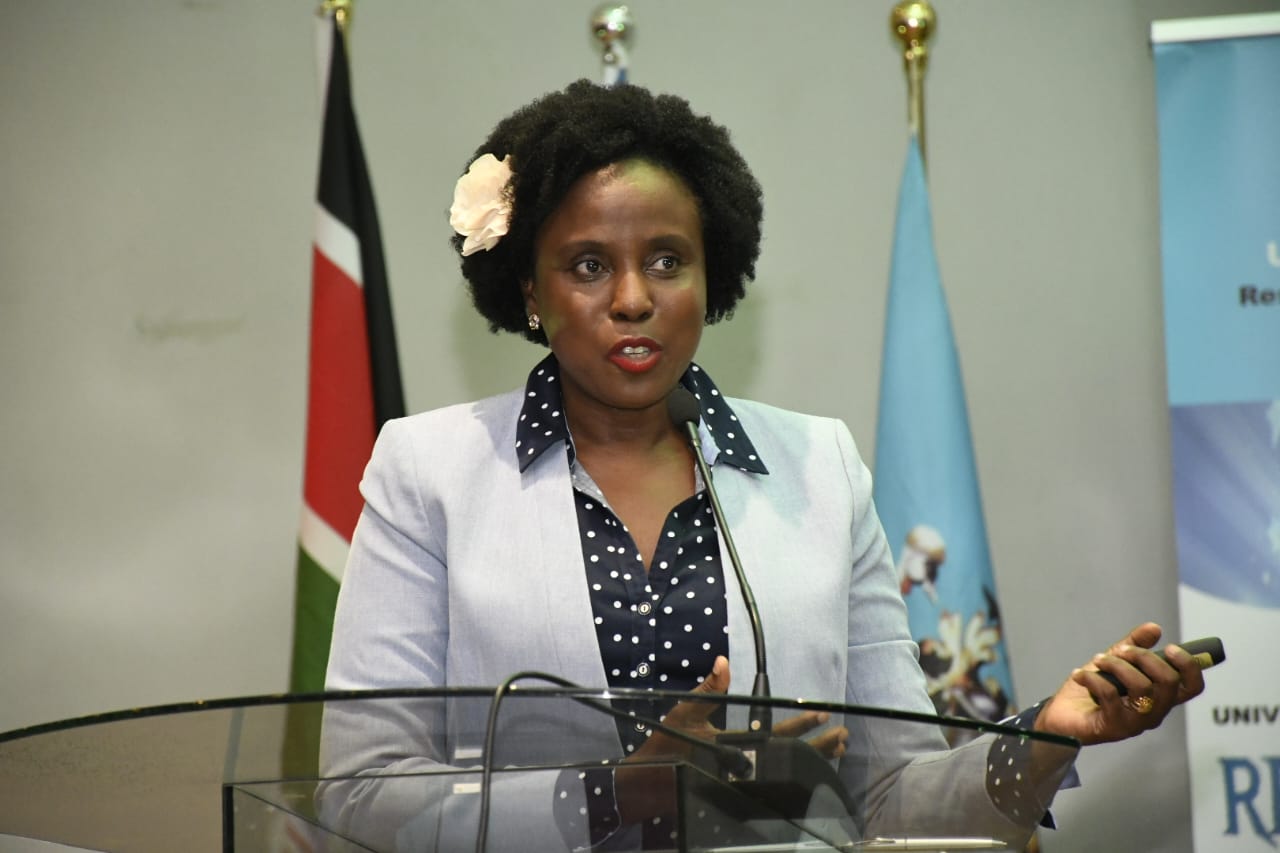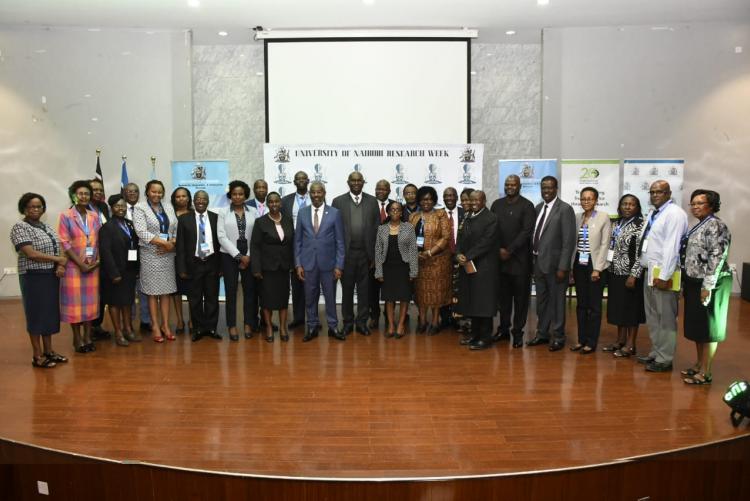The University of Nairobi just launched its 6th annual research week on Monday, 23rd October,2023. The event’s theme, “Harnessing research for resilience and sustainability of community”, represented the university’s culture of innovation. The open ceremony was attended by the Vice chancellor of the university Prof. Stephen Kiama, associate vice chancellor, Research Innovation and Enterprise (RIE), Prof. Margaret Hutchinson, a representative from the Ministry of Education Mr.Frederick Ndambuki, Executive Director of APHRC Dr. Catherine Kyobutungi, to mention but a few.

“For the first time all the ten faculties of the university are participating in the research,” noted Prof. Margaret Hutchinson, the team leader of RIE as she started off the ceremony and introduced the keynote speakers. This depicted the significance of the event to the university and its stakeholders.
One of the main topics discussed in the opening by the various speakers was on the place of African researchers and Academics in the world as far as research and innovation is concerned. “This is the world where Africa doesn’t almost exist, in the world of scientific publication and the world of patents granted” noted Dr. Catherine Kyobutungi, the Executive Director of APHRC. Dr. Catherine discussed that Africa as a continent has been stuck in the middle when it comes to global research. African scientists have been invisibilized in the global research systems. This has consequently led to dependency and dehumanization of African nations, among other things.
In addition to this Dr. Kyobutungi also elaborated that disinformation is a growing crisis in Africa, as the vacuum created by the lack of knowledge in the continent is filled with propaganda. “If we step out, somebody else will step in,” said Dr.Kyobutungi . She urged African academics to work with the innovation community as partners in the fight to claim their rightful place in the Global research system. She concluded by positing that the global research equity has not been achieved where Africa is concerned. “To the question, has the global system given equity to Africa, the answer is NO”, she remarked.
Moreover, lack of funding is also another challenge in the African research and innovation system. “Funding is a major issue”, says VC Kiama. Prof.Kiama also pointed out that the university of Nairobi embodies the aspirations of Kenyans, as a research center. The university has established several centers for every faculty, dedicated to research. But it is the lack of sufficient funds that gets in the way of the goals research and innovation could help achieve, as the Vice chancellor of the university explained.
The Kenyan government has committed ksh. 749 million to research, science, technology and innovation, in the financial year 2023-2024 budget. The government also commits to progressively increase resources allocated to research as more revenue is realized. “We have agreed as a Government, that science and technology is the way to go, and it shall remain an enabler on matters of growth and development of our country”, remarks Mr. Frederick Ndambuki, who was there representing the Cabinet Secretary,Ministry of Education, Hon.Ezekiel Machogu.
"This event embodies a significant step towards our nation's pursuit of knowledge driven progress underpinned by the evolving bottom-up economic transformation agenda", says the CS of the ministry of education, Hon. Ezekiel Machogu, in his speech that was read by Mr.Frederick Ndambuki. In his speech, CS Machogu commended the university of Nairobi for identifying research and innovation as a defining pillar of development and for convening the annual research week event.
Click on the link below for more information on the event.
https://www.youtube.com/live/caKV1PRVObc?si=ioDQm4BMdDQPfHOC

